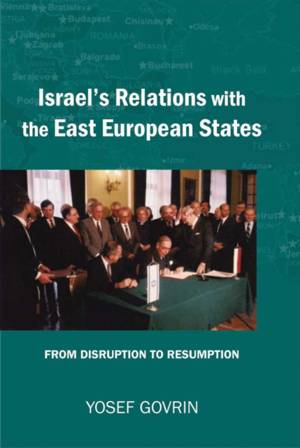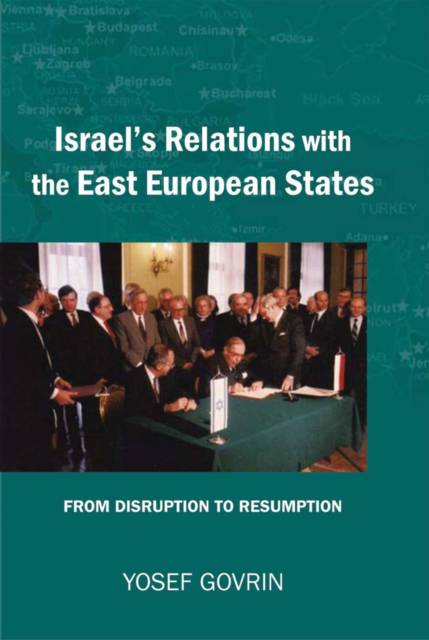
Bedankt voor het vertrouwen het afgelopen jaar! Om jou te bedanken bieden we GRATIS verzending (in België) aan op alles gedurende de hele maand januari.
- Afhalen na 1 uur in een winkel met voorraad
- In januari gratis thuislevering in België
- Ruim aanbod met 7 miljoen producten
Bedankt voor het vertrouwen het afgelopen jaar! Om jou te bedanken bieden we GRATIS verzending (in België) aan op alles gedurende de hele maand januari.
- Afhalen na 1 uur in een winkel met voorraad
- In januari gratis thuislevering in België
- Ruim aanbod met 7 miljoen producten
Zoeken
Israel's Relations with the East European States
From Disruption (1967) to Resumption (1989-91)
Yosef Govrin
Hardcover | Engels
€ 74,45
+ 148 punten
Omschrijving
In the years 1989-1991, Israel renewed its diplomatic relations with the USSR, Bulgaria, Hungary, Yugoslavia, Poland, and Czechoslovakia - relations which were severed subsequent to the Six Day War. Diplomatic relations with Albania were established for the first time. Talks with East Germany came to nothing due to East Germany's refusal to recognize its part in paying restitutions to Israel for its involvement in the persecution of Jews during the Nazi rule, and due to the approaching German reunification process. Author Yosef Govrin served in those years as Deputy Director General of Israel's Ministry of Foreign Affairs, in charge of East and Central Europe, and took part in the diplomatic process. Govrin documents, for the first time, the chain of contacts between Israel and the countries of East-Central Europe (except for the USSR) which led up to renewing diplomatic relations between them. Govrin also deals with the hostile policies towards Israel in the international and Middle Eastern arena, anti-Semitism against their Jewish minorities, and the status of their Jewish communities during the break in diplomatic relations and in the time that followed. East European political and economic motivations to improve relations with Israel are also examined, from the mid-1980s towards a gradual renewal of diplomatic relations, together with their liberation from their dependence on the USSR and their transition from a Communist regime to a liberal one.
Specificaties
Betrokkenen
- Auteur(s):
- Uitgeverij:
Inhoud
- Aantal bladzijden:
- 332
- Taal:
- Engels
Eigenschappen
- Productcode (EAN):
- 9780853038931
- Verschijningsdatum:
- 26/01/2011
- Uitvoering:
- Hardcover
- Formaat:
- Genaaid
- Afmetingen:
- 165 mm x 235 mm
- Gewicht:
- 680 g

Alleen bij Standaard Boekhandel
+ 148 punten op je klantenkaart van Standaard Boekhandel
Beoordelingen
We publiceren alleen reviews die voldoen aan de voorwaarden voor reviews. Bekijk onze voorwaarden voor reviews.









